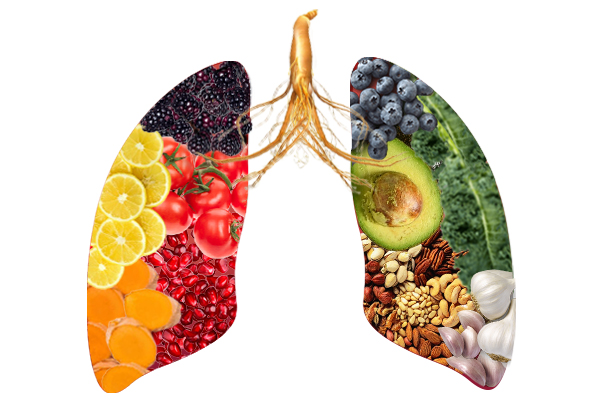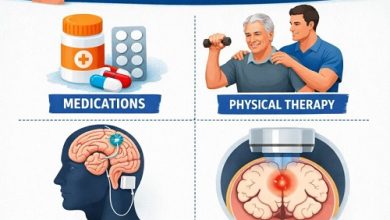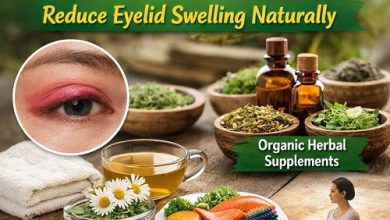Processed Food and Lung Cancer: The Alarming Link You Need to Know Now

In today’s fast-paced world, processed food has become a staple in many diets. From frozen meals to packaged snacks and instant noodles, convenience often wins over nutritional value. While it’s long been known that processed foods contribute to obesity, diabetes, and cardiovascular diseases, emerging research reveals a more frightening consequence: a possible link between processed food consumption and lung cancer.
The alarming connection between processed foods and lung cancer, delving into current research, the science behind this link, the role of inflammation and additives, and what you can do to reduce your risk. If you think lung cancer is only a smoker’s disease, think again—your diet might be putting your lungs at risk, even if you’ve never lit a cigarette.
What Are Processed Foods?
Processed foods are foods that have been altered from their natural state for convenience, preservation, or taste. This includes:
- Packaged snacks (chips, cookies)
- Ready-to-eat meals (TV dinners, microwaveable foods)
- Processed meats (sausages, bacon, ham)
- Canned soups and vegetables
- Breakfast cereals
- Soft drinks and sugary beverages
While not all processing is harmful (e.g., freezing vegetables or pasteurizing milk), ultra-processed foods—those with high levels of sugar, unhealthy fats, additives, and preservatives—pose the greatest risks to health.
Lung Cancer: Not Just a Smoker’s Disease
Lung cancer is the leading cause of cancer death worldwide, responsible for approximately 1.8 million deaths annually. While smoking remains the primary risk factor, non-smokers account for up to 20% of lung cancer cases, many of which are linked to environmental and dietary factors.
This raises an important question: What role does diet—particularly processed food—play in lung cancer development?
The Growing Body of Research: Diet and Lung Cancer
1. Ultra-Processed Foods and Cancer Risk
A 2018 study published in the BMJ involving over 100,000 participants found that a 10% increase in the proportion of ultra-processed foods in the diet was associated with a 12% increase in overall cancer risk and an 11% increase in breast cancer risk. While the study did not isolate lung cancer specifically, it highlighted the carcinogenic potential of such foods.
2. Additives and Preservatives as Carcinogens
Processed foods are often loaded with nitrates, nitrites, and artificial colorants, which are suspected or known carcinogens. In processed meats, sodium nitrite reacts with amino acids in the stomach to form nitrosamines, which have been shown to cause cancer in animal studies—including lung cancer.
3. Inflammation and Oxidative Stress
Highly processed foods are rich in refined carbohydrates, trans fats, and artificial sweeteners—all of which can trigger chronic inflammation and oxidative stress in the body. Chronic inflammation is a known precursor to many cancers, including lung cancer.
How Processed Foods Contribute to Lung Cancer
Let’s break down the biological and chemical pathways through which processed foods may increase lung cancer risk:
1. Nitrosamines from Processed Meats
Nitrosamines are one of the most potent carcinogens known to scientists. These compounds form when nitrates and nitrites (commonly used to preserve meats) interact with proteins in the stomach. Several studies link nitrosamines to lung tumor development in lab animals, suggesting a similar effect could occur in humans.
2. Insulin Resistance and Cell Proliferation
Diets high in processed foods often lead to insulin resistance and elevated insulin-like growth factor-1 (IGF-1) levels. IGF-1 is associated with increased cellular proliferation, which can accelerate the mutation of healthy cells into cancerous ones, including those in the lungs.
3. Microbiome Disruption
Processed foods disrupt the gut microbiota, affecting immune regulation. A compromised immune system can reduce your body’s ability to detect and destroy emerging cancer cells, including those in lung tissue.
4. Artificial Additives and Flavor Enhancers
Some flavor enhancers, like monosodium glutamate (MSG) and artificial sweeteners, are linked to cellular changes in the lungs. Though not conclusively proven to cause cancer in small quantities, regular consumption over time may have compounding effects.
Not All Calories Are Equal
It’s not just about how much you eat—it’s what you eat that matters. A calorie from a fresh salad doesn’t impact your lungs the same way as one from a frozen pizza. Processed foods are often nutrient-poor and calorie-dense, contributing to:
- Obesity: A known risk factor for many cancers, including lung cancer.
- Metabolic syndrome: A cluster of conditions that include high blood pressure, high sugar levels, and abnormal cholesterol—all of which increase cancer risk.
Who’s at Greatest Risk?
Although everyone should be cautious about their diet, certain groups are more vulnerable to the cancer risks of processed food:
1. Non-Smokers Exposed to Pollution
Those living in areas with high air pollution already face increased lung cancer risk. Adding a poor diet to the mix amplifies the danger.
2. Genetically Susceptible Individuals
People with a family history of cancer may have gene mutations that make them more sensitive to carcinogens found in processed food.
3. People with Poor Immune Health
Individuals with compromised immune systems, such as those with chronic illness or autoimmune disorders, may be less able to fight off early cancer cells.
How to Protect Yourself
Reducing your intake of processed foods doesn’t mean you have to sacrifice flavor or convenience. Here are practical strategies to lower your risk:
1. Prioritize Whole Foods
Choose whole grains, fresh vegetables, lean proteins, and healthy fats over packaged or frozen meals.
2. Read Labels Carefully
Avoid foods with a long list of unpronounceable ingredients. Watch for nitrites, MSG, artificial colorants, and preservatives.
3. Cook More at Home
Preparing your meals ensures you control what goes into your food—especially salt, sugar, and unhealthy fats.
4. Eat Anti-Inflammatory Foods
Incorporate foods known for their anti-cancer properties, such as:
- Leafy greens
- Turmeric
- Berries
- Garlic
- Cruciferous vegetables like broccoli and cabbage
5. Quit Smoking and Avoid Secondhand Smoke
Even if you eat healthily, smoking will counteract any dietary benefit. Combine healthy eating with a smoke-free lifestyle for the best protection.
What the Experts Are Saying
Nutritionists and oncologists worldwide are beginning to take diet more seriously in cancer prevention.
“While smoking is still the leading cause of lung cancer, the role of poor diet is increasingly coming into focus. Ultra-processed foods create the perfect storm for cancer development—particularly when combined with other environmental risks.”
— Dr. Alicia Green, Oncologist, University of Chicago Cancer Center
“We are what we eat. The chemicals and preservatives in processed foods don’t just disappear in the body—they interact with our cells in ways we are only beginning to understand.”
— Dr. Peter Wang, Nutritional Biochemist
The Bigger Picture: Why This Matters Now
The global consumption of ultra-processed food is skyrocketing, especially among young people. According to the World Health Organization, over 50% of daily calories in many developed countries now come from ultra-processed foods.
Meanwhile, lung cancer remains the deadliest cancer, in part because it is often diagnosed late. Linking diet to lung cancer gives us a powerful tool for prevention, especially for non-smokers.
Processed Foods to Avoid (Red List)
Avoid or severely limit the following if you want to protect your lungs:
- Processed meats (bacon, hot dogs, deli meats)
- Sugary beverages and sodas
- Microwave meals
- Packaged cakes and pastries
- Flavored chips and snacks
- Artificial sweeteners (e.g., aspartame, saccharin)
- Instant noodles
- Fast food burgers and fries
Foods That May Reduce Lung Cancer Risk (Green List)
Add these to your weekly shopping list:
- Cruciferous vegetables (broccoli, cauliflower)
- Green tea
- Garlic and onions
- Tomatoes (rich in lycopene)
- Salmon and fatty fish (omega-3s reduce inflammation)
- Nuts and seeds
- Whole grains
- Fresh fruits, especially berries and citrus
Final Thoughts
The evidence is clear: a diet high in processed food can increase your risk of developing cancer—including lung cancer. While smoking still tops the list of causes, poor nutrition is rapidly becoming a silent contributor, especially in our modern, convenience-driven culture.
Understanding this link empowers you to make better choices. By reducing processed food intake and embracing a diet rich in whole, nutrient-dense foods, you not only protect your lungs but also improve your overall health and vitality.




